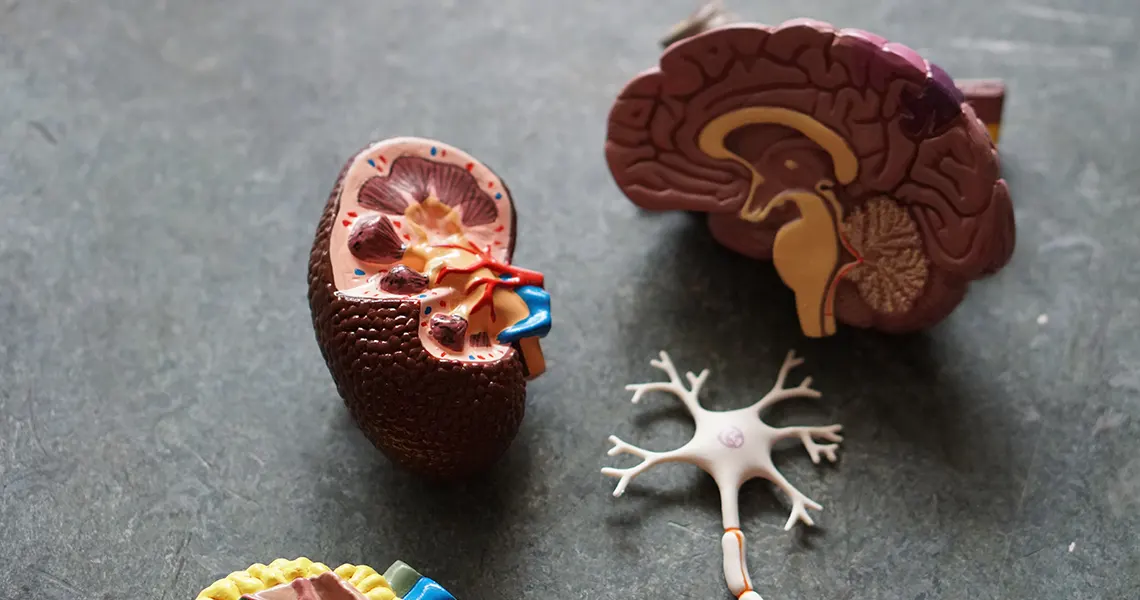
What is CBD oil?
CBD is the commonly known abbreviation for cannabidiol. It is a naturally occurring chemical compound found in plant-based treatment options in Australia. The non-psychoactive substance sits alongside THC as the two major ingredients in medicinal plant-based products.
CBD oil is among the most popular of these products. The cannabidiol is infused with a carrier oil and additional ingredients such as flavouring. It is stored in a dripper bottle that allows users to carefully administer the prescribed dosage.
A main driving force behind cannabidiol’s popularity is its non-intoxicating nature. The lack of the characteristic “high” associated with plant-based treatments makes it a more viable option for many.
Research on the alternative treatment option is, however, still limited. It can thus be difficult to conclude anything with absolute certainty regarding the use of CBD. Still, the early signs have been encouraging enough to justify the research, and experts have emphasised the need for continued effort.
With the plant-based treatment market steadily expanding, it’s important to review what we know about the side effects and safety of using the plant-based oil as a treatment option.
What are the side effects of CBD oil?

CBD is considered a generally safe option for adults. However, as with most forms of medications, there are a few potential side effects to be aware of.
Some of the most commonly reported side effects of using the plant-based medicine are:
Dry mouth
CBD may occasionally cause you to produce less saliva, resulting in a drier feeling on your lips and inside of your mouth.
Changes in appetite
In some cases, cannabidiol seems to affect the appetite of the patient. This could be an increase or decrease in appetite, depending on the individual.
Vertigo
Although unlikely, large doses of CBD may cause drowsiness in some patients. Infrequent users may be more likely to experience light-headedness or vertigo after consuming high concentrations of cannabidiol.
Diarrhoea
Cannabidiol oil may have a bad interaction with your digestive system and cause diarrhoea or an upset stomach in some patients.
Change in liver enzymes
Doctors have warned that CBD may increase liver enzymes, and as such individuals with pre-existing liver conditions or diseases should avoid using CBD, or regularly review their liver enzymes.
Additional precautions
Qualified medical practitioners may advise against the use of CBD in the following scenarios:
- The patient is pregnant or breastfeeding
- The patient has a liver disease or condition
- The patient is a child or teenager
- The patient is on existing medication that may have a negative interaction with CBD
How long CBD oil side effects last will depend on a number of factors such as the product consumed, the metabolism of the individual, and the frequency of use. For the most part, the side effects experienced while using CBD are likely to be mild in nature.
You should always stick to your doctor’s recommendation when using CBD. Most experts agree that up to 1500mg of cannabidiol per day is well tolerated in adults. The risks associated with consuming too much CBD is relatively low, but not non-existent. As the effects can differ from person to person, you may feel undesirable side effects if you’ve taken too much.
If you’ve accidentally consumed too much CBD and start to feel somewhat sick, you should contact a doctor immediately. For most people, however, cannabidiol is unlikely to cause adverse effects, even in large doses.
Does CBD oil affect your organs?

A few experts have raised concerns about how CBD may affect your organs. In particular, researchers have actively been exploring how it may impact the liver.
The concerns are driven by the fact that CBD metabolises in the liver. Recent studies, however, suggest that the risks are minimal and the initial worry may have been misguided.
A research review in 2020 wrote that there is a low risk of liver damage at the high doses used in pharmaceutical plant-based products and an even lower risk of liver damage at the low doses. The authors emphasised the need for more research in this regard.
A study from 2021 also found that those self-medicating on CBD are unlikely to experience any sort of damage or harm to liver functionality.
Regarding any CBD oil side effects on kidneys, there is no evidence to suggest that cannabidiol has any adverse effect on kidney function.
Where can you get CBD oil?

In Australia, only patients with a valid prescription from a qualified medical practitioner may legally access CBD oil.
The product is classified as a schedule-4 prescription-only medication and is thus regulated by the Therapeutic Goods Administration (TGA).
If you believe that CBD may be a suitable treatment option for you, the first step is to consult with your doctor. A plant-based medicine should never be used as the first line of treatment, and patients must have thus first tried conventional treatment options.
If mainstream medicine is not working, and there is evidence to suggest that CBD may prove effective for the patient’s condition, a doctor may prescribe the medicinal plant-based product.
You may have noticed a few places selling CBD online, but this is still entirely illegal. Purchasing a product from an unauthorised source can lead to large fines and may have lasting legal consequences.
Furthermore, black-market CBD products are far more likely to contain harmful toxins or bacteria as there is no proper regulation or third-party testing.
Patients should only ever use plant-based treatments if it has been recommended by a qualified medical practitioner.
How does CBD work?

Researchers aren’t exactly certain how cannabidiol functions, but many believe it impacts the endocannabinoid system.
The endocannabinoid system (ECS) is a series of densely packed signals and receptors found throughout our bodies and brains. The purpose of the ECS is to help regulate many of our bodily functions, such as mood, memory, pain, and appetite.
We produce endocannabinoids inside our bodies. These naturally occurring compounds attach to the receptors to signal to the ECS to act. Once it has performed its function, enzymes break down the endocannabinoids and the ECS is aware that its function has been performed.
Cannabidiol seems to work by stopping the enzymes from breaking the endocannabinoids down. As such, the ECS receives no signal to stop and continues to act, producing a longer and stronger effect.
Experts are still actively researching how CBD works to get a clearer and more conclusive understanding.
Summary
CBD, or cannabidiol, is a crucial part of plant-based treatment options in Australia. The relatively low risks and lack of intoxicating effects make it a popular product for patients in need.
There are, however, a few side effects to be aware of when using cannabidiol as a treatment option. Users may experience symptoms of dry mouth, changes in appetite, and even drowsiness. The side effects are unlikely to be severe, and will most likely be mild in nature for most people.
CBD oil can only be legally purchased with a valid prescription from a qualified medical practitioner. Buying the plant-based treatment from an unauthorised source is unlawful and may have legal consequences. The risks of harm are also much higher if using unregulated products.
The plant-based product works by interacting with our endocannabinoid system. Most experts think that CBD prevents enzymes from breaking down endocannabinoids that have attached to the receptors in the ECS.
For more information on the side effects of CBD oil, don’t hesitate to speak to one of our qualified experts today.
